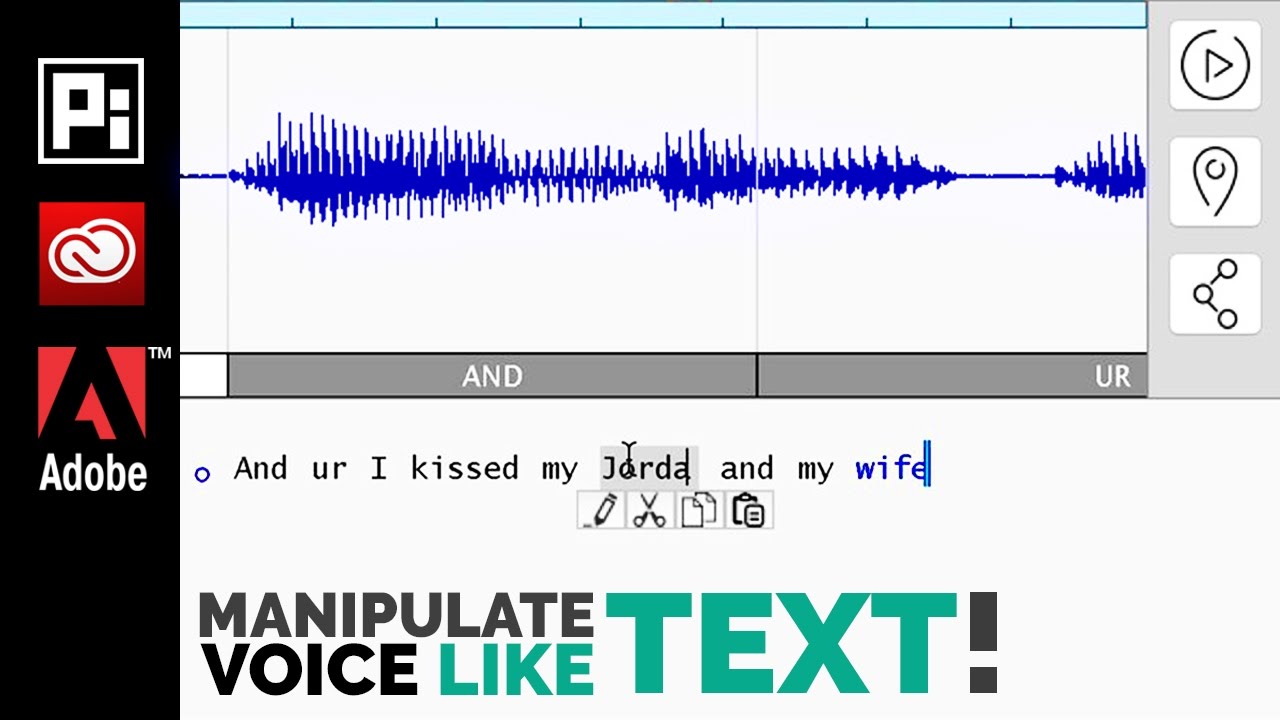
Voice now has a Photoshop, Know everything about Adobe’s new Project VoCo
A breakthrough in the world of audio, and a news caused a lot of noise of bad before the good although it’s something new and revolutionary in the audio field.
A new program from Adobe which has always been impressing us with what it offers in the world of multimedia, so join me to know more about the project VoCo.
Project VoCo
Voice Conversation or VoCo is a program developed be a team from Princeton University called Photoshop of voice due to its amazing ability to visualize and edit audio as like what Photoshop does with photos and even more easier.
The engineers have managed to remove the sound bites by editing clips and copying them for many years, which allowed them to come out with a program that’s capable of carrying out their task easily with a modern interface -not finished yet- synthesizing what you write with the recorded sound, and make it said by the way you want with the same sound.
“There was a project called VoCo on its way but it still in the under development,” Adobe’s Zeyu Jin the developer who spoke in Adobe’s annual conference Adobe Max which held last year in November said “but it’s commercial launch time is not planned yet.”
The team has connected with some people who offered to help them in the development process by giving them their voice recordings, and it’s expected that a research will be provided by Jin talking more about the project this month.
Mechanism of Action
The program uses some artificial intelligence that allow it to learn by itself by inserting audio clips with at least 20 minutes’ period.
This period may be reduced in the future with more updates.
After the program learns the voice, it will analyse the section and divide it into Phonemes and then copies the section and develop the audio model which can be modified by the user by writing what he wants to hear from the voice and choose from nine methods of reading to make the voice as realistic as possible.
Benefits and Disadvantages
The program has several benefits. The most important one is to help patients who cannot speak to be able to talk with their own voice to allow their families and relatives to hear their voice again by using old recordings.
“We came closer to someone who suffers from a neurological disease,” Said Jin, “
Who can only speak through writing with a machine says what writes through a program controlled by him, but the sound sounds robotic, lile the program used by Steven Hawking, but he wants his little daughter to hear his real voice, and this can happen by using his old recordings and making an assistant that can help him to talk with his real voice.”
This is the most important benefit of the program, but the disadvantages are very catastrophic and dangerous.
Yes, the program is a breakthrough in the world of technology, but the possibility of using it for unethical purposes makes it dangerous.
Imagine a person having a 20-minutes voice recording, which required to teach the program the voice of the recording owner, and then this person inserts the recording to the program and write what he wants to hear with the recording owner.
Why should we imagine, you can see this in the video that shows the program process that came from Adobe Max conference by entering a sound recording with the sentence:
“And ur i kissed my dog and my wife.”
The recording will be modified after few clicks to be:
“And ur i kissed jordan three times.”
Of course we didn’t hear the name Jordan or the word “Three Times” in the original recording, and that’s what the program has done, which means that we have entered a new era of audio synthesis of confessions and conversations which can lead to personal, family, political and even international disasters.
Ministers and kings’ conversations are in everywhere via their interviews and statements, so let’s hope there will be no disasters due to the new Adobe project.
“Don’t worry,” Jin said. “We actually have researched how to prevent forgery. Think about watermarking detection. As we’re getting the results much better, making it so people can’t distinguish between the fake and the real one, we’re working harder trying to make it detectable.” He then gave a thumbs up and grinned.
Share your opinions and knowledge in the comments section below, and let me know what do you see about the upcoming VoCo program which we need to wait nearly a year or more to have it officially.
